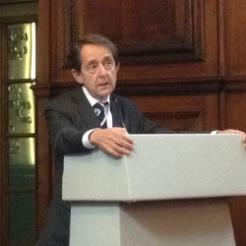The recent trend of charitable independent schools establishing state school academies will help them demonstrate beyond doubt that they provide sufficient public benefit under charity law, according to Dr Anthony Seldon, the master of Wellington College.
Dr Seldon delivered a compelling speech about the benefits of academies to a schools legal conference organised by law firm Lee Bolton Monier-Williams yesterday.
Wellington College has already established its own state-school academy and recently hired James O’Shaughnessy, David Cameron’s former policy chief, to spearhead the establishment of a whole chain within the Wellington ‘family’.
Asked by civilsociety.co.uk whether sponsoring academies might help put paid to the suspicion that independent school don’t provide enough public benefit, Dr Seldon replied: “I think it would help. They don’t do it for that reason, that’s not the motivation, but yes it would help.”
‘Jesus Christ would have approved of academies’
Seldon listed seven common objections from colleagues within the independent sector to the academy programme, and then set about dismissing them. At one point he invoked Jesus Christ to support his case.
He said that getting involved in the academies programme is “particularly incumbent on Christian schools because I don’t think that Jesus would have approved of our independent schools which were socially removed from the rest of the nation. Jesus would have been very much on the academies bandwagon.”
He said independent schools could learn a huge amount from the state school sector, and declared: “Frankly, you don’t have to know very much about leading schools to lead an independent school. That’s the elephant in the room.
“When you’ve got 30-odd kids in a state school classroom and most of them don’t even want to be there, you have to really know how to teach. When you’ve got 12 children in a class who are quite bright and quite well motivated, it’s a different style of teaching but you could learn a great deal from those who have to really see teaching as a skilled art form.”
Bursaries morally questionable
Dr Seldon also attacked the objection that independent schools already do enough for poorer kids by providing bursaries. “Bursaries are ok, but are only a micro-solution because they are only ever going to affect a very small number.” He added that bursaries were morally questionable, because they remove the brightest children from the very schools that desperately need good students. He recalled how the morale of a whole rugby team at a local comprehensive collapsed after their best player was awarded a bursary to a public school and left. The rest of the team stopped playing and eventually disbanded.
Dr Seldon called on the various independent sector umbrella bodies, such as the Independent Association of Preparatory Schools and the National Grammar Schools Association, to form units to help schools set up and run academies. Such units would advise schools on the legal, administrative, HR and other back-office work that is required.
Only available to the super-rich
In response to a question from the floor about whether he agreed with recent comments in the national media from Dr Martin Stephen, high master of St Paul’s Boys School, that independent schools are becoming the preserve of the super-rich, Dr Seldon agreed he is “partly right”.
Fee income has risen but this is because teachers’ salaries have, quite rightly, risen, and the costs involved in running a school are very high, he said.
But that is not to say that only the super-rich can afford to send their children there, he added. Fees are still within the means of a two-parent family where both parents are in professional work and have incomes of more than £30,000, and perhaps get some financial help from the grandparents, he said.










